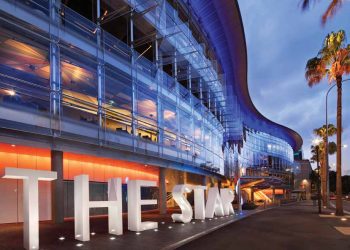Las Vegas Sands Corp. will resume construction in Macau “before the end of the year”, the company’s Chairman and Chief Executive Sheldon Adelson has told the BBC.
The remark came in response to a question in a one-to-one recorded interview with a BBC journalist broadcast on Thursday on the BBC World satellite and cable channel.
Asked when Macau building work would recommence, Mr Adelson was bullish:
“Before the end of the year. It’s billions of dollars.”
Asked if he would consider further expansion in Asia, Mr Adelson added: “Listen, the Asians have a higher propensity to play in a casino than Caucasians do. So there’s no reason why we shouldn’t focus on trying to get more locations in Asia.”
The degree of ambition contained in Mr Adelson’s second answer shouldn’t necessarily make readers sceptical about his ability to deliver on the first. Mr Adelson has been able to maintain LVS as a going concern despite an exceptional burden of corporate debt in a challenging global market.
In the same interview, Mr Adelson brushed off the suggestion his company was in money trouble.
“Money and I get along very well. We don’t have any trouble between us. There are no arguments, no confrontations—money and I get along very well,” he told his interviewer.
This was classic Mr Adelson. It plays extremely well to a general audience but analysts will naturally want to know more about the substance behind the bullishness.
The interview went to air hours after media reports suggested LVS would attempt to raise up to US$4 billion-worth of funding for Macau. Analysts suggest a combination of strategies would be required in current market conditions to meet that kind of target. These range from sale of part or possibly all of LVS’s Macau real estate, to the creation of a local Asian unit capitalised partly by an initial public offering of shares on the Hong Kong stock market.
Whether institutional or large private investors will have an appetite for Hong Kong IPOs in general and casino IPOs in particular under persistently volatile market conditions remains to be seen. LVS’s stock price was 300% higher this week than it was during the lows linked to the general stock market crash last year. Nevertheless, the LVS price was 40% down on six weeks ago.
Mr Adelson has competing pressures. He needs to reassure existing investors that their money is safe in his company.
When asked during the BBC interview about cost cutting in the business, Mr Adelson replied with a glint in his eye: “Is there something wrong with saving money?”
But cost savings alone at his existing properties won’t cut it, given the corporate debt level. He will have to spend his way to investor confidence. This is a tightrope walk. A successful issuing of fresh equity risks diluting existing shareholders to unacceptable levels. A poorly received equity sale would further erode confidence and could mean Mr Adelson having to use up even more of his fortune to stabilise the share price. A sale of existing assets or leveraging off existing assets in a bear market risks the double whammy of coming in under the expected cash-raising target while also upsetting investors about a lost opportunity should the general market recover soon afterward.




































